
The copy in this 1951 Fortune magazine ad (below) sponsored by the trucking company Trailmobile says as much:
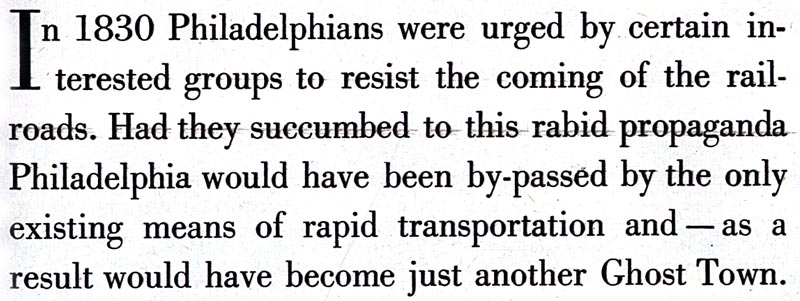
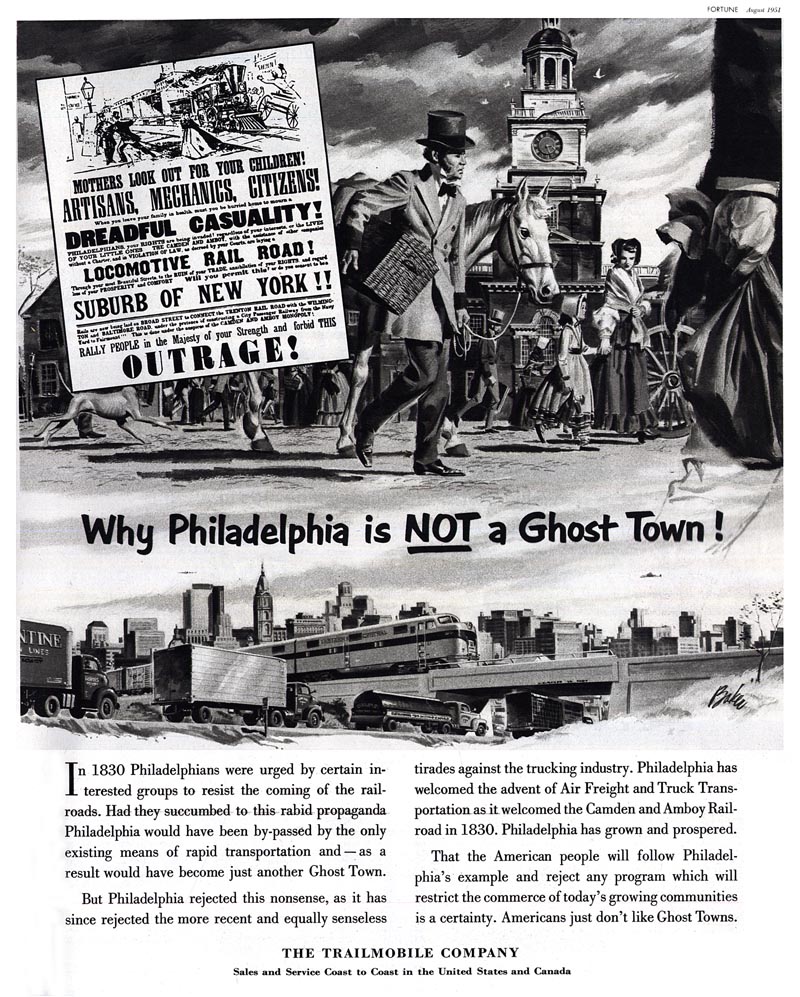
But throughout the early '50s, Trailmobile itself sponsored a steady stream of ads in Fortune that used fear as a tactic to push the company's message that America needed more and better roads and highways.
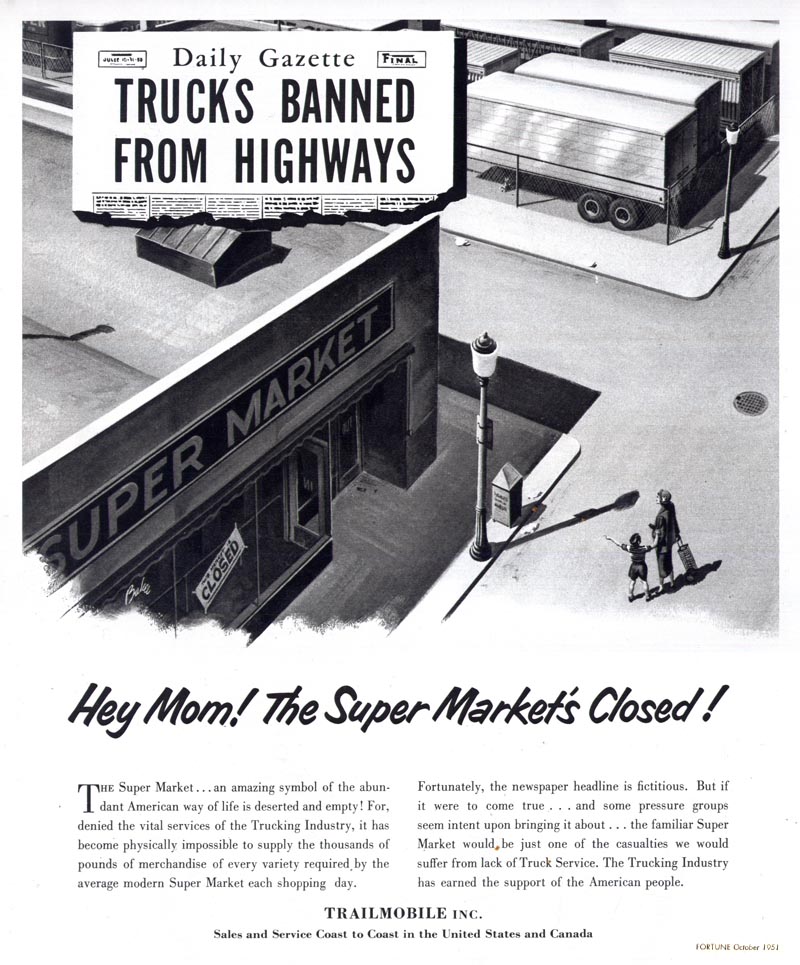
Trailmobile, a trucking company dependent on government funding of road infrastructure for its success, understood the importance of persuading politicians, business people and individual tax payers to support its agenda.
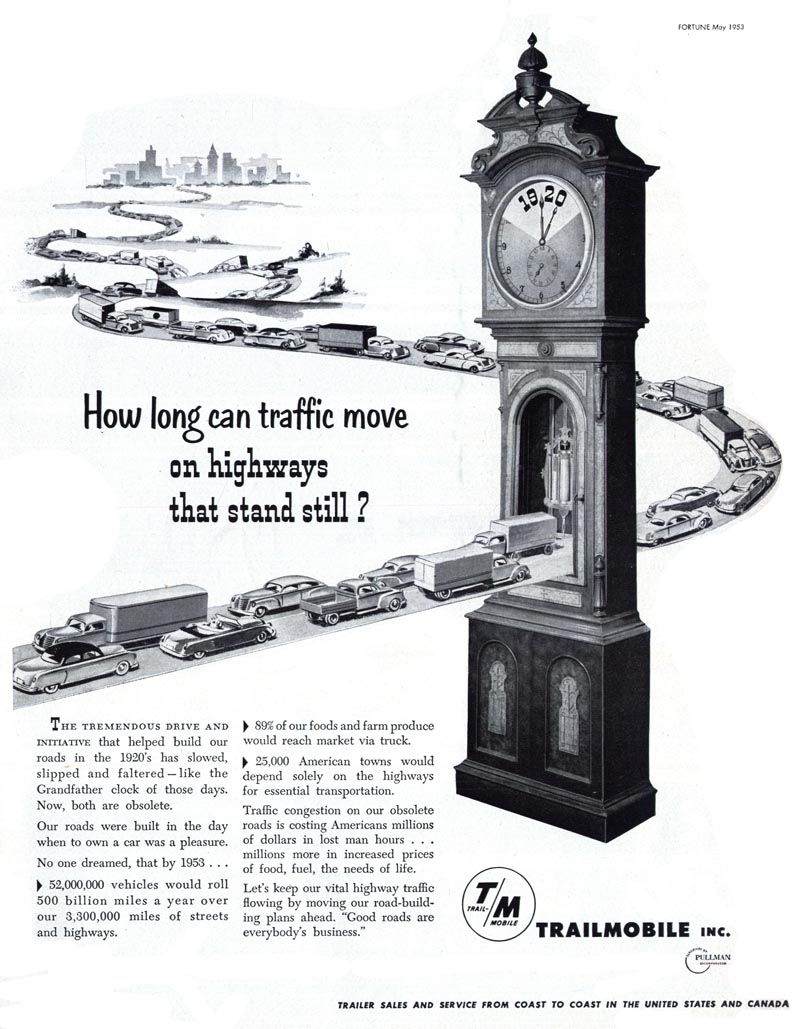
So when in its ad copy, Trailmobile speaks of "certain interest groups" using fear-based "rabid propaganda" back in the 1800s to try to sway public opinion in Philadelphia...
... what do the company's ads say about Trailmobile?

The other day I presented this Trailmobile ad below.
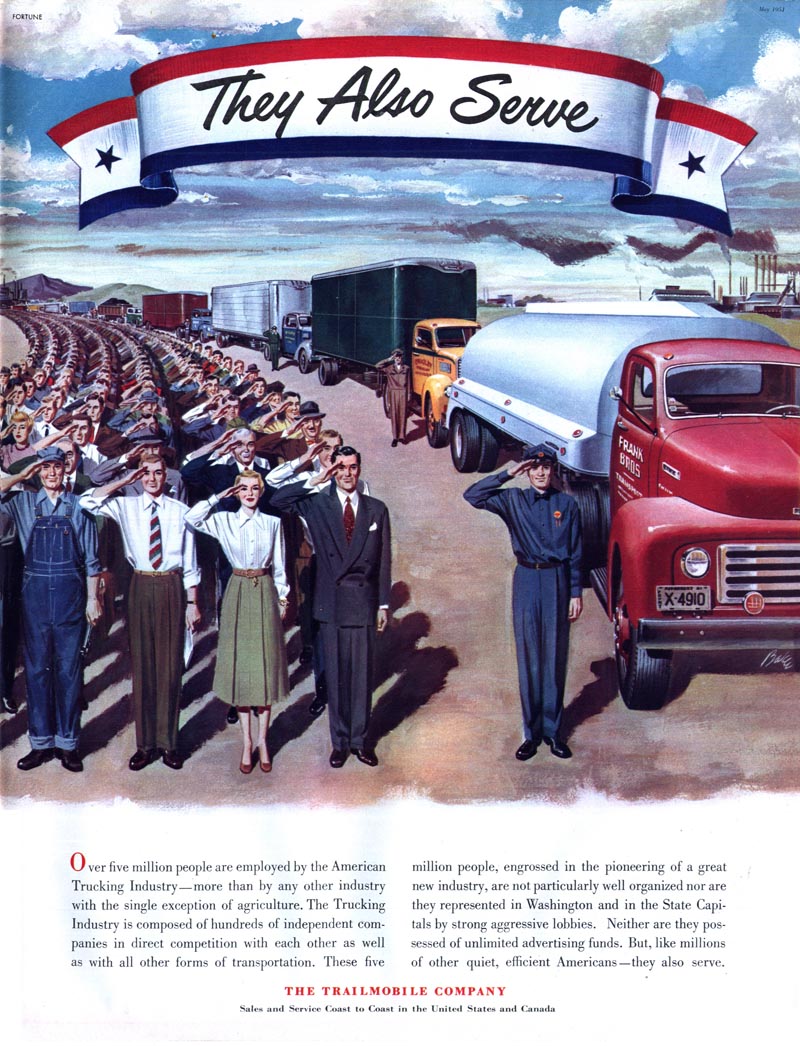
The copy on this ad contains an equally interesting passage:
"These 5 million people ... are not particularly well organized nor are they represented in Washington or the State Capitals by strong aggressive lobbies."
Whether that was true or not, ads like Trailmobile's certainly represent a particularly effective form of lobbying. Influence enough people, especially those in positions of power, and you move your agenda into the spotlight and steer public policy.
I've shown just one example, but Fortune magazine was rife with advertising/propaganda/lobbying of this sort (there was a ton of it in consumer magazines like The Saturday Evening Post and Life as well) by all industries. Take for instance, the oil industry.
The oil industry has always been extremely proactive in its use of pro-oil propaganda.
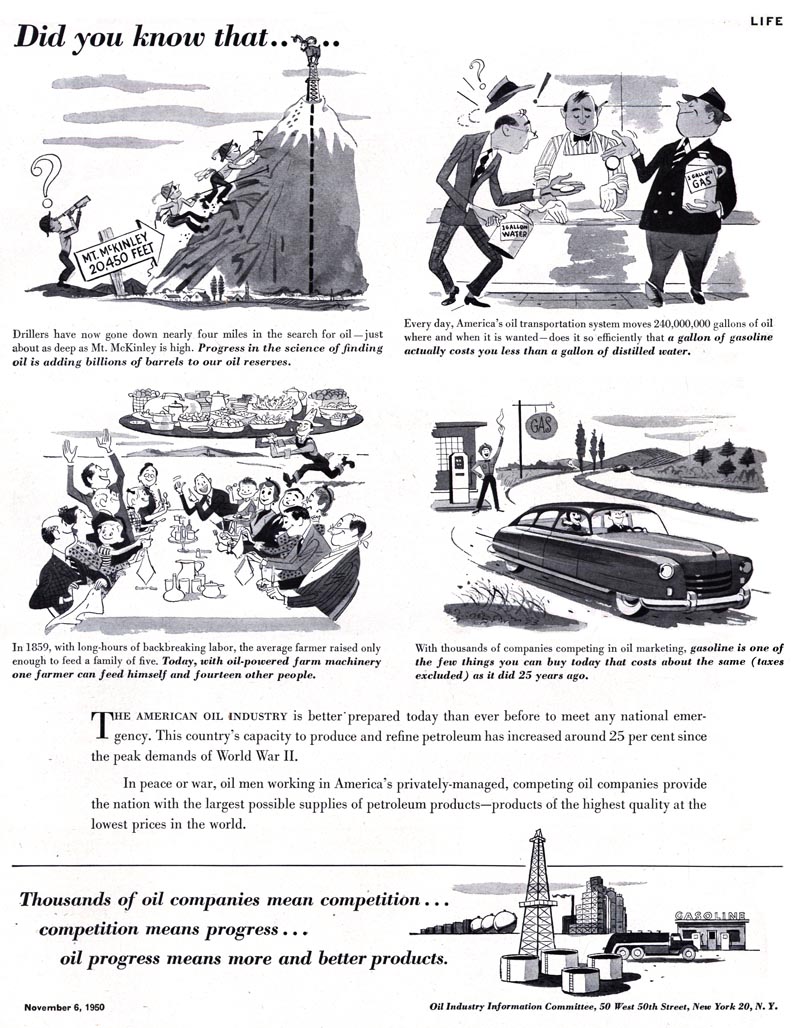
If you accept Richard Alan Nelson's definition of propaganda - "... a systematic form of purposeful persuasion that attempts to influence the emotions, attitudes, opinions, and actions of specified target audiences for ideological, political or commercial purposes through the controlled transmission of one-sided messages..." - then you'd have to say that ads like these from the early 1950s would qualify as pro-oil industry propaganda.
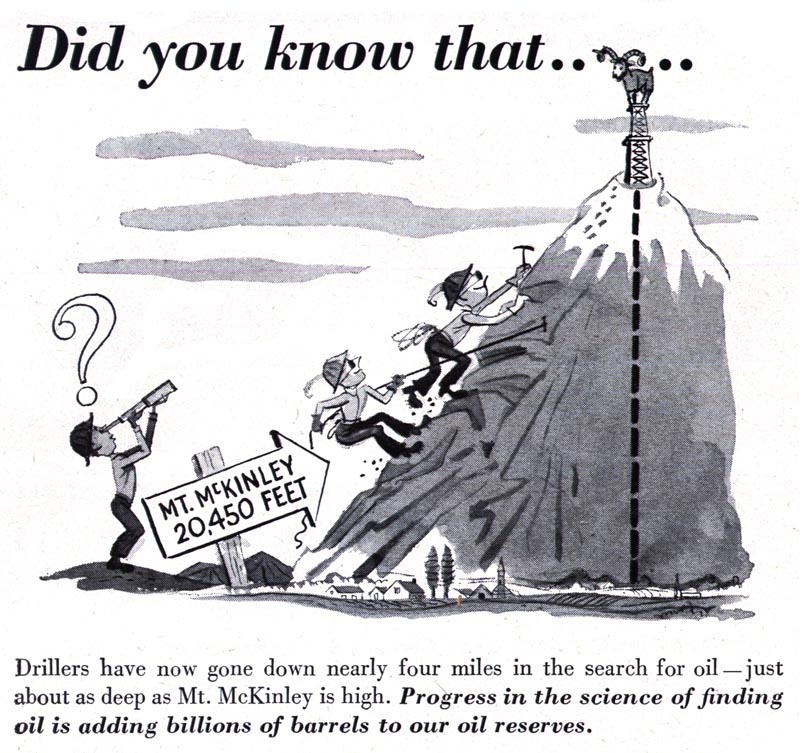
Here the message is certainly one-sided and attempts to influence attitudes and opinions.
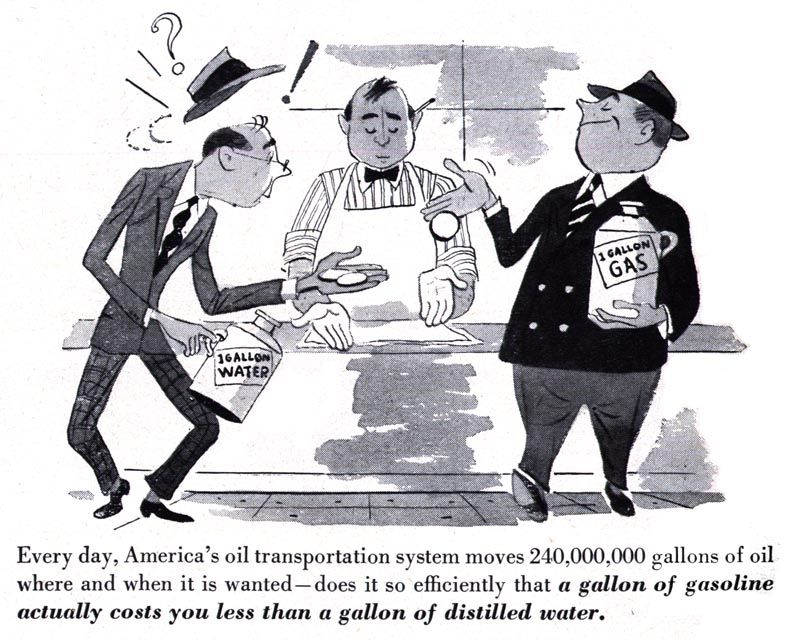
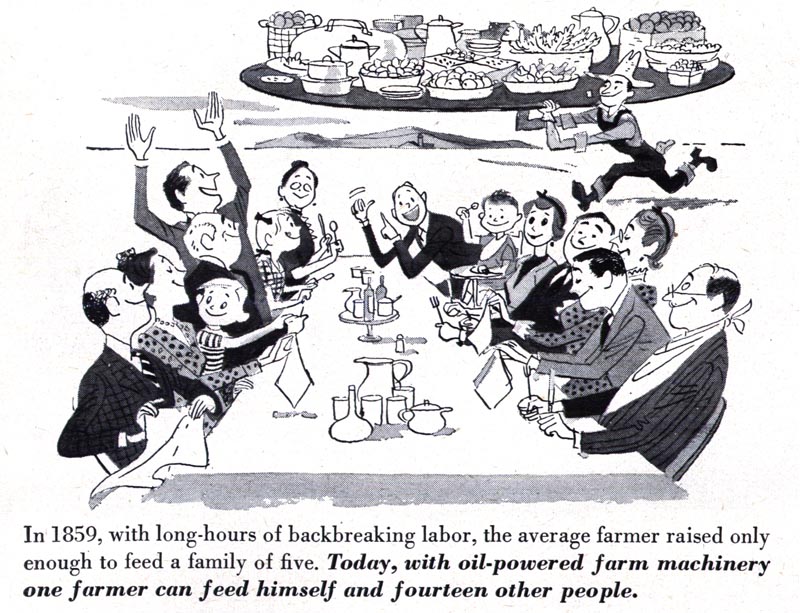
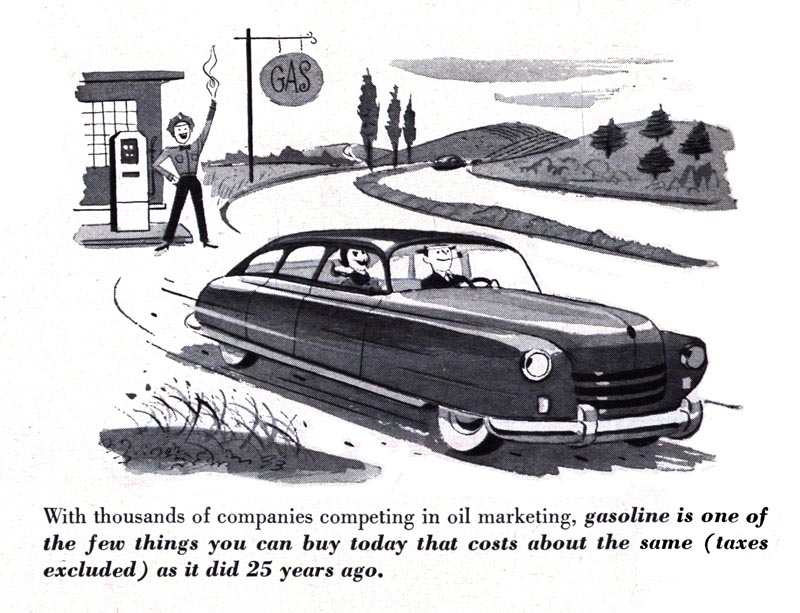
But again, the use of scare tactics was also popular in attempting to influence emotions.
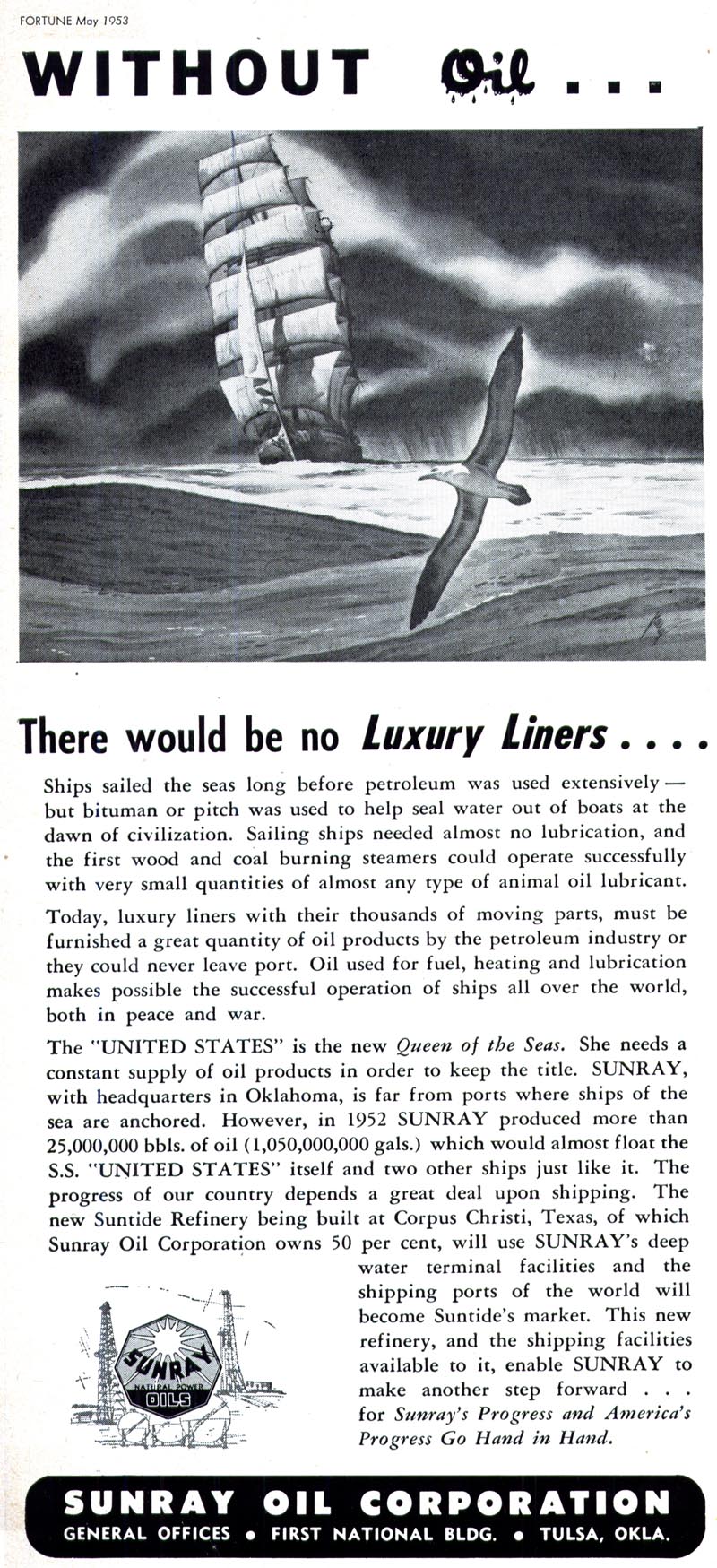
Cheap and plentiful oil, more and better roads... its not hard to see how the concerted efforts of different industries were influencing us all - from the individual consumer to the highest levels of government - and in doing so, industry propaganda was shaping our society.
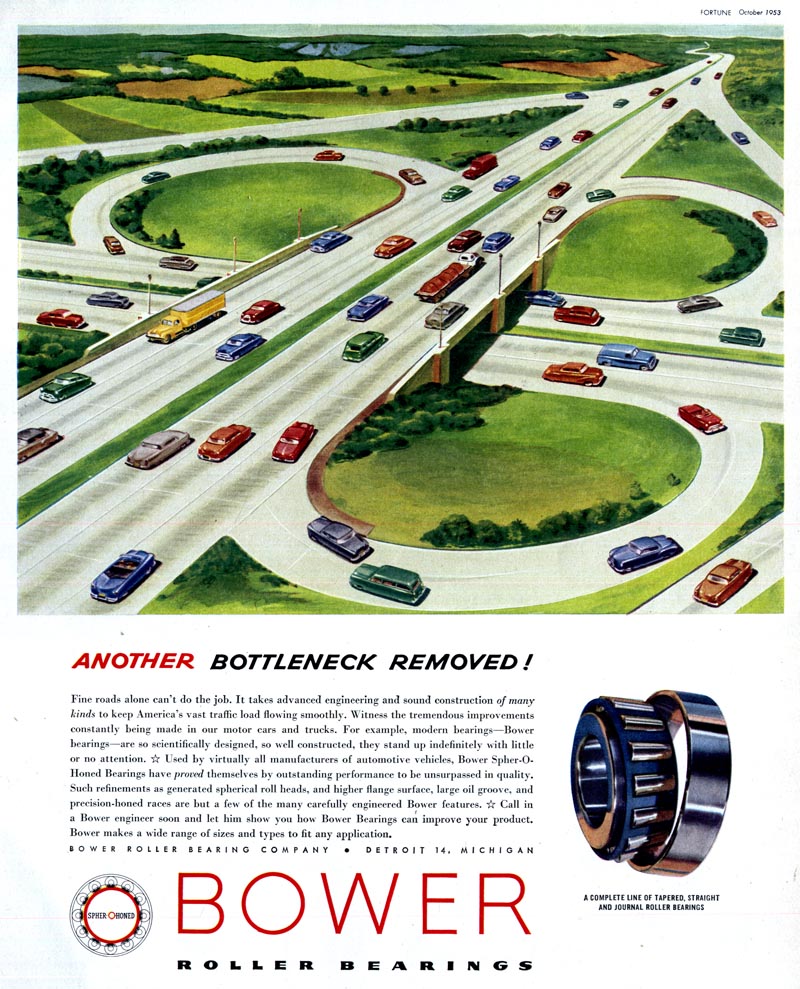
Looks pretty idillic, doesn't it? A typical, prosperous small town somewhere in America. There's the barber shop and there's the five and dime and - oh, look! There's the GM auto dealer! As the ad says, "Right here on Main St."
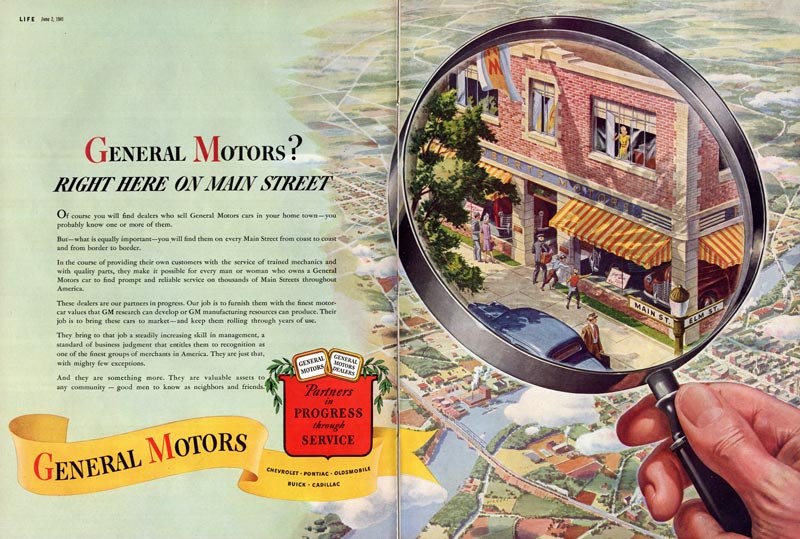
We've certainly had a love affair with the car for a very, very long time. Getting out on the open road behind the wheel of a shiny new automobile isn't considered a privilege by most of us.
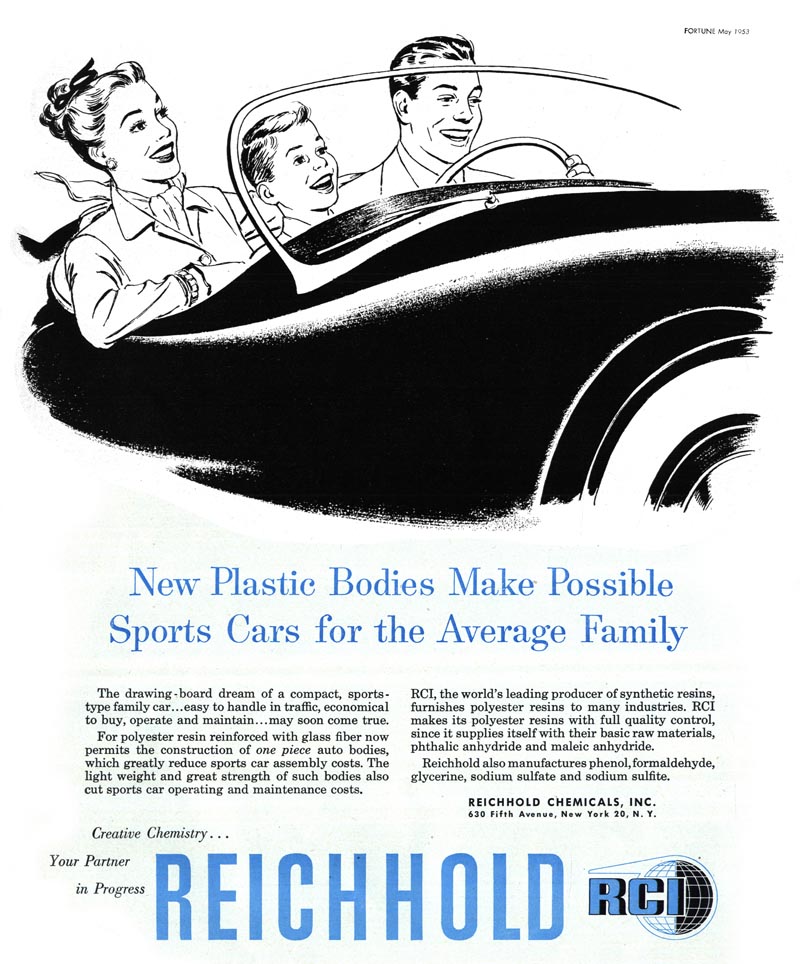
Its a right. Its a necessity.
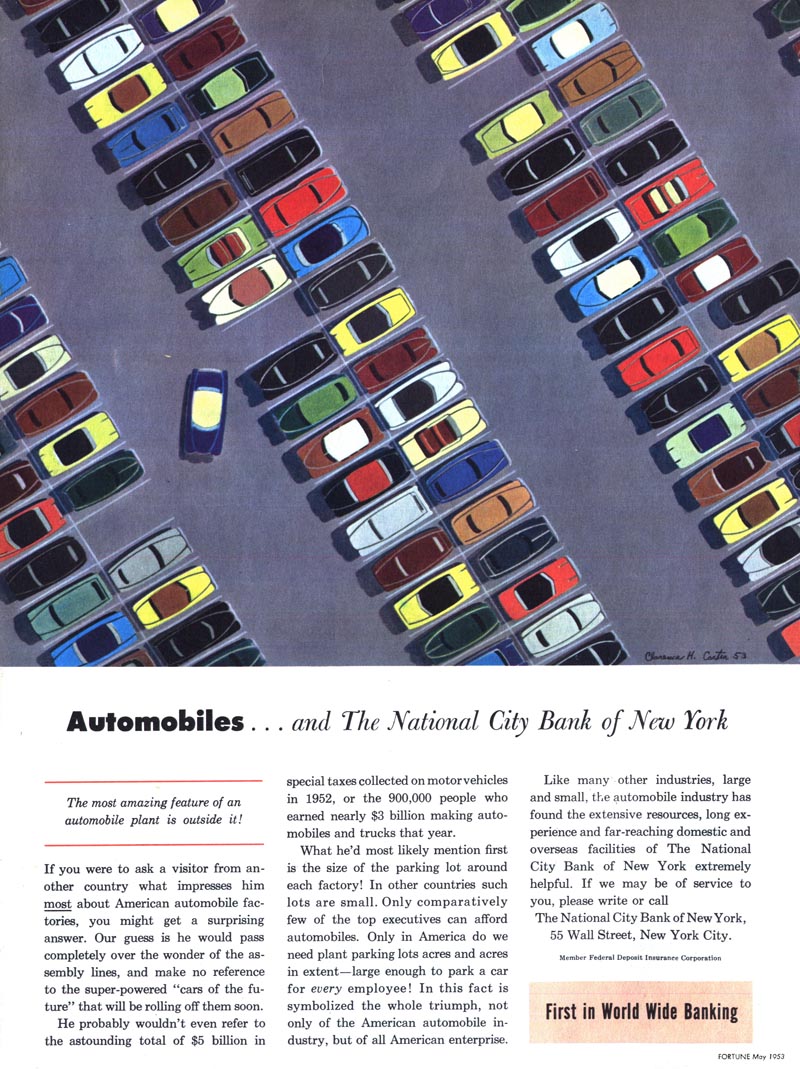
The auto industry hasn't just been an important component of the North American economy during the last hundred years.
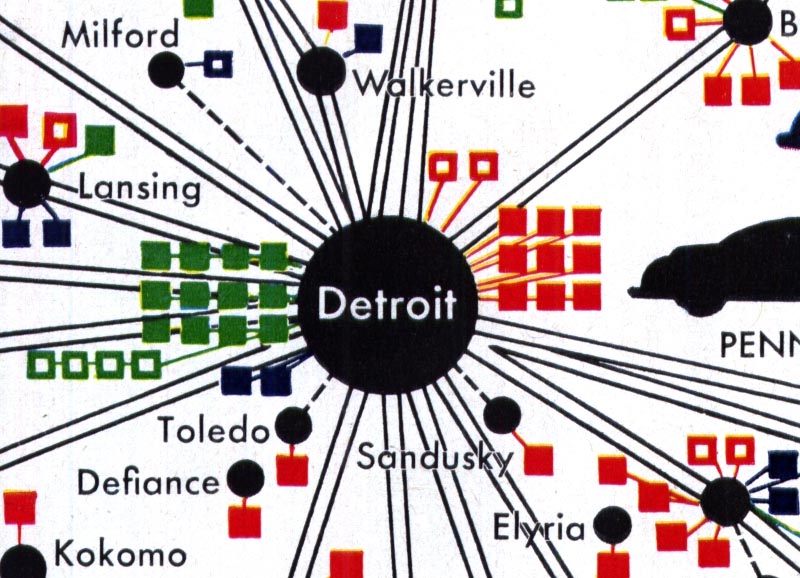
It's been the most important component. The catalyst for a thousand related industries!
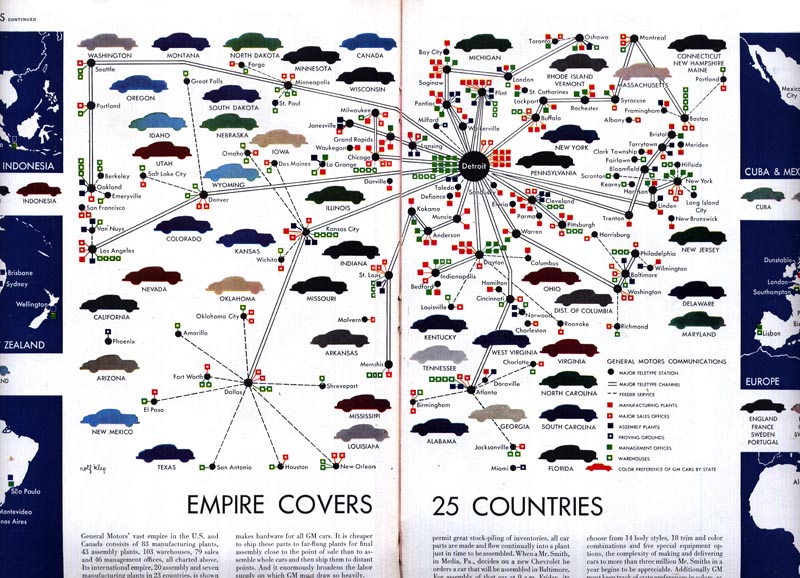
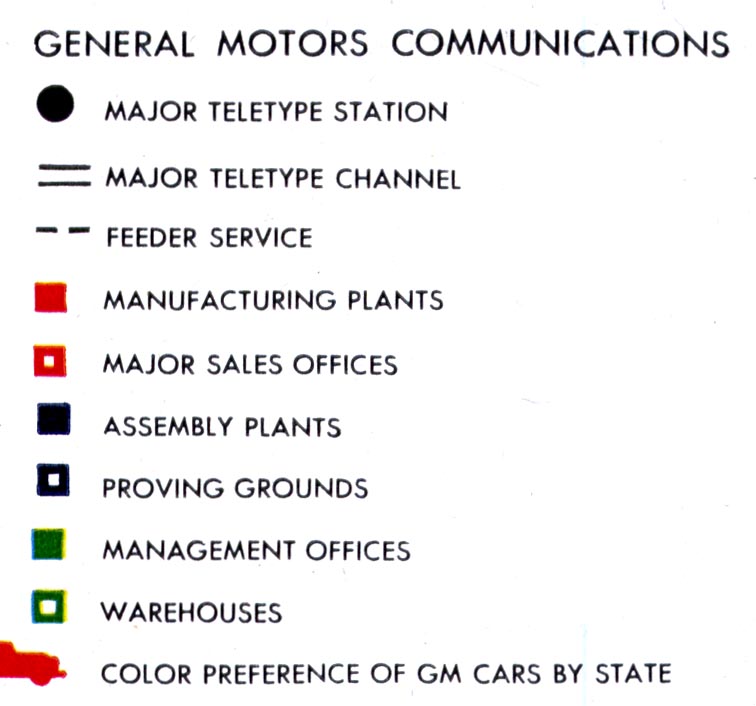
And what made it all possible was oil.
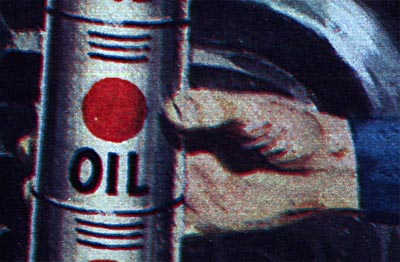
Today, oil sells for over a hundred dollars a barrel. Experts predict it could reach $150 by this summer.
Back then, when industry was using propaganda to shape the future, I doubt anyone could have imagined the challenges we would face half a century later. Decaying infrastructure we can't afford to maintain, manufacturing that has migrated off the continent, environmental degradation and health-related consequences and the hollowing out of great cities by commuter populations that number in the millions...
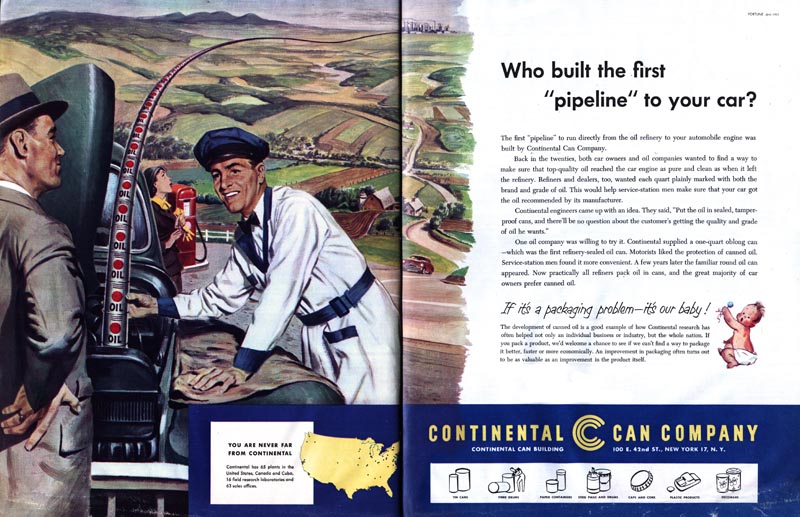
And even if we could've anticipated the problems, I doubt if we'd have done things differently.
Where naysayers see pollution and massive urban sprawl, others see incredible wealth creation and employment for generations comprised of hundreds upon hundreds of millions of people.
I don't present any of this as an indictment of industry or of the propaganda it uses to influence society. We've all been willing participants in the greatest parade the world has ever seen.
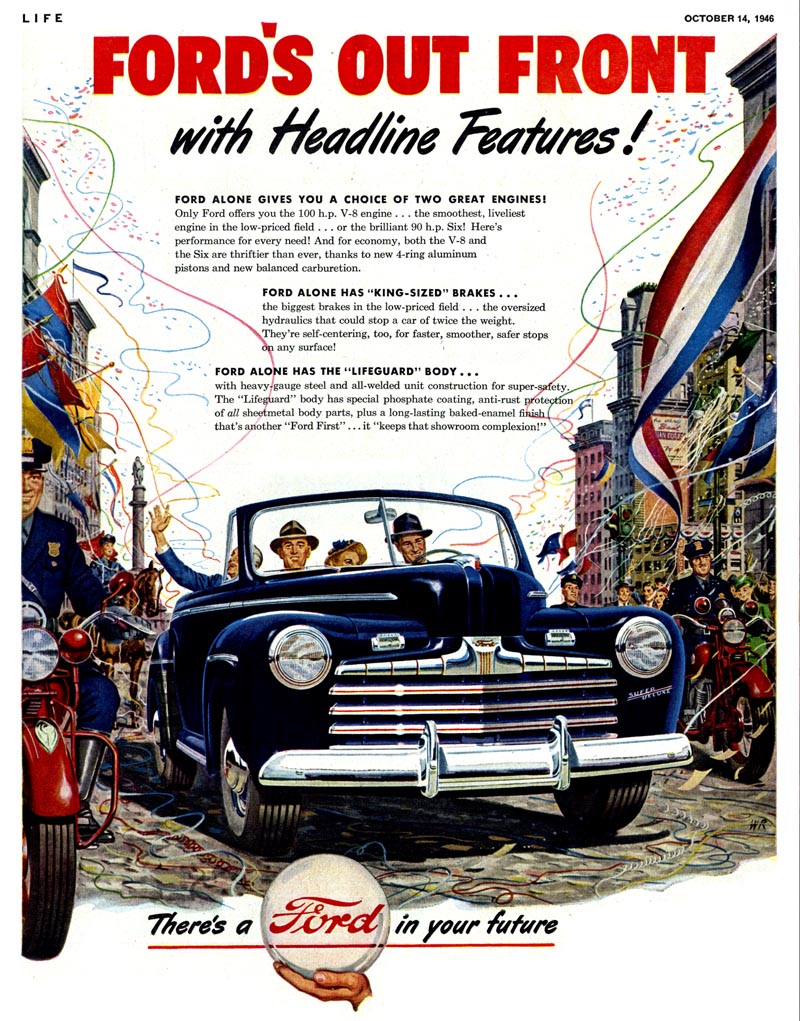
I'm just saying it didn't happen by accident.






0 comments:
Post a Comment